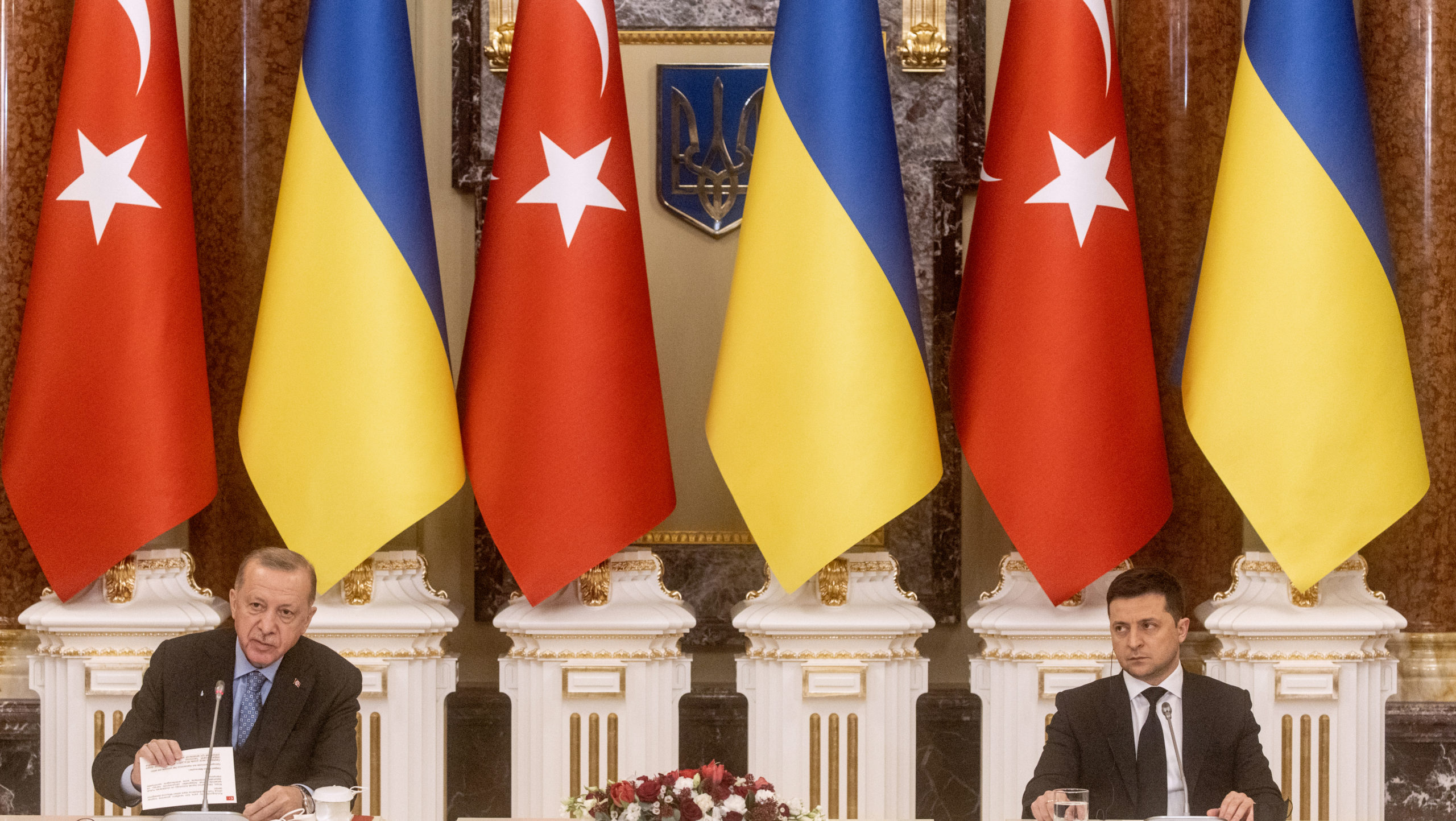There are few silver linings for anyone concealed within the increasingly bloody and destructive war in Ukraine, but there may be one notable exception: Turkey, and its mercurial autocrat Recep Tayyip Erdogan. Until the war began a few weeks ago, Erdogan was an increasingly marginalised figure, shunned by the Biden administration, and heading towards an election overshadowed by Turkey’s catastrophic economic collapse. But Putin’s invasion has thrown the ailing sultan a lifeline.
The ambiguous relationship with Putin’s Russia that once saw Turkey relegated to NATO’s awkward squad now appears more like a valuable backchannel for diplomacy. When we add in Turkey’s close relationship with Ukraine (including major defence cooperation such as the sale of the TB2 drones currently used by Ukraine to destroy Russian armour), Erdogan can now bask in the glory of a role as honest broker in the peace negotiations ongoing in Antalya.
It’s no wonder then that Erdogan’s stock, until recently almost valueless, has risen dramatically in the past few weeks: as the Turkish journalist Amberin Zaman noted this week in an incisive piece for Al Monitor:
Following the call, Biden — who had until recently been ignoring Erdogan’s approaches — expressed “appreciation for Turkey’s efforts to support a diplomatic resolution to the conflict, as well as Turkey’s recent engagements with regional leaders that help promote peace and stability,” as well as discussing “opportunities to strengthen bilateral ties.” Erdogan, it seems, has been welcomed back into the Western fold.
Will this rapprochement last? The answer is that as well as the results of the peace talks, it also depends on what happens in Turkey’s presidential election in June next year. International plaudits are a fine thing to have — as the academic Pinar Tremblay notes, “since the Russian invasion of Ukraine began nearly three weeks ago, there has been a newfound optimism among [Turkey’s ruling] AKP ranks…” as “AKP elites also see this as a God-sent opportunity to sweep the 2023 elections” but they don’t put food on voters’ tables.
Indeed, the unparalleled sanctions being levelled against Russia will also cause significant collateral damage in Turkey: Russia is Turkey’s biggest trading partner after the EU with 23 billion euros worth of bilateral trade in 2019. Russia is also Turkey’s primary energy supplier, the technical advisor behind the country’s new nuclear power plant project and the prime source of vital tourist money — more visitors come to Turkey from Russia each year than from any other country.
The longer the war drags on, the more economic damage it will do to Turkey as well as to Russia and Ukraine: for voters already struggling with their cost of living, this may well tip the balance back towards the country’s opposition candidates — or, as in the UK and US, the Ukraine war may be a useful excuse for ailing incumbents to blame inflation on… at least for now.
In Turkey, just as here at home, the full electoral impact of this war and the shortages it will carry in its wake is still yet to come.











Join the discussion
Join like minded readers that support our journalism by becoming a paid subscriber
To join the discussion in the comments, become a paid subscriber.
Join like minded readers that support our journalism, read unlimited articles and enjoy other subscriber-only benefits.
Subscribe